Tuesday 25th October to Monday 7th November 2022
We’d been rather nervous about tacking the notorious Mozambique Channel and in the end it turned out to be one of the most enjoyable passages of our circumnavigation so far.
So why does the Mozambique Channel have such a fearsome reputation? It is due to the currents there, which usually run from north to south, running at up to 4 knots in places. In the north of the Channel there are three anti-clockwise rotatory gyres, then further south the Mozambique Current and from Richard’s Bay onwards the particularly strong Agulhas Current. When a southerly weather system comes up from around the bottom of South Africa bringing strong winds from the south, wind against tide can generate huge waves, many metres high, which makes being out at sea extremely uncomfortable to downright dangerous.
And so as we left Mayotte we were prepared for the worst. The grab bags of survival equipment were ready in case we should have to abandon ship to the life raft. The Jordan Drogue (a series of strong parachutes that are trailed behind a boat to keep it facing into oncoming seas and hopefully prevent it from capsizing) was in the cockpit in case we needed to deploy it in particularly bad weather. The canister of flares was easily accessible in the rear locker. Passports, emergency cash and credit cards were in separate bum bags (fanny packs to our American readers) should we have to abandon ship in an emergency.
Eight other yachts were leaving Mayotte the same day as us. We were quickly left behind by Il Sogno, Joint Venture and Windwalker, (a 56 ft Oyster and two fast catamarans that were expecting, and did, make the 1300 mile passage without stopping, although not without their own difficulties). We left through a pass on the southeast of the lagoon and headed more or less due south. Hecla had decided to take a different course to the west whilst Endorphin headed more southeast. The wind was light and we were rather upset as Lora, a much smaller (only 30 foot) 50 year old monohull sailed by singlehanded American, Jason, gradually caught up and overtook us. With the wind almost directly behind us we got the pole out to goosewing the mainsail and genoa, but even with the improved speed that gave us we were unable to catch up with the much lighter and narrower Lora which sails particularly well in light winds.
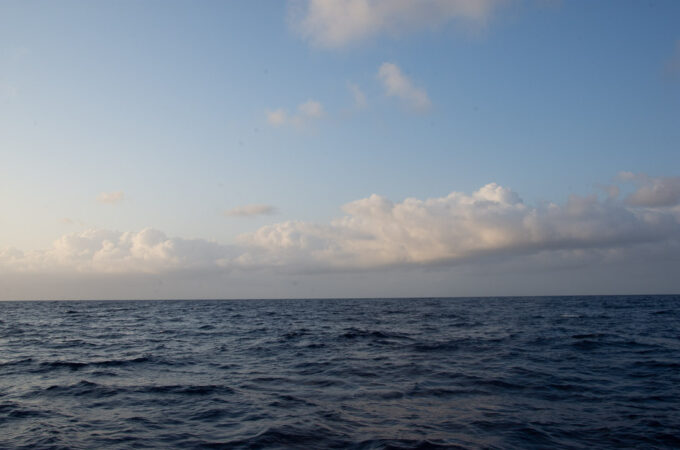
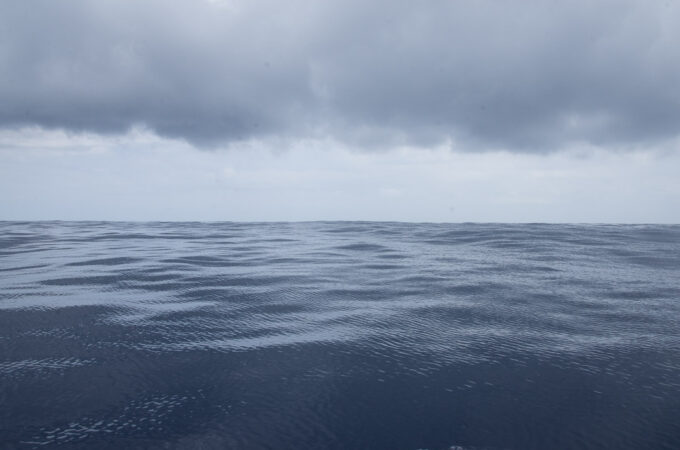
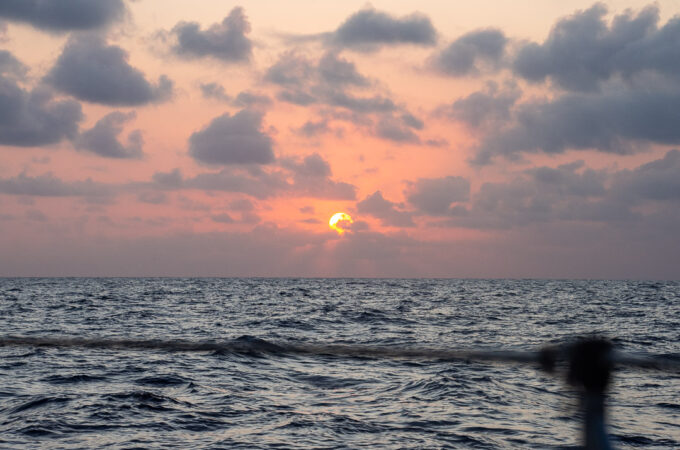
Over the next three days we had easy, pleasant, gentle sailing, helped at times by a favourable current, allowing us to relax, read, cook, make bread and to fish. On day 3 at sea, within 20 minutes of putting the handline out, we had a bite. I slowly pulled the line in and we could see the vivid turquoise and yellow of a large mahi-mahi which was fighting hard, veering to and fro behind the boat as I hauled it in. Hugh tried to get it into the net to land it but at the last minute the swivel caught on a rail and twisted, allowing the fish to escape. It was disappointing as they are so good to eat although also a bit of a relief as we didn’t have to kill such a beautiful fish. I put out the handline again and it wasn’t long before we had another strike! This time a decent sized skipjack tuna which was easier to get on board and which Hugh quickly killed. It did us for the next three days of meals. Fried tuna with cabbage and potatoes, fish with white bean stew and tuna in coconut sauce.
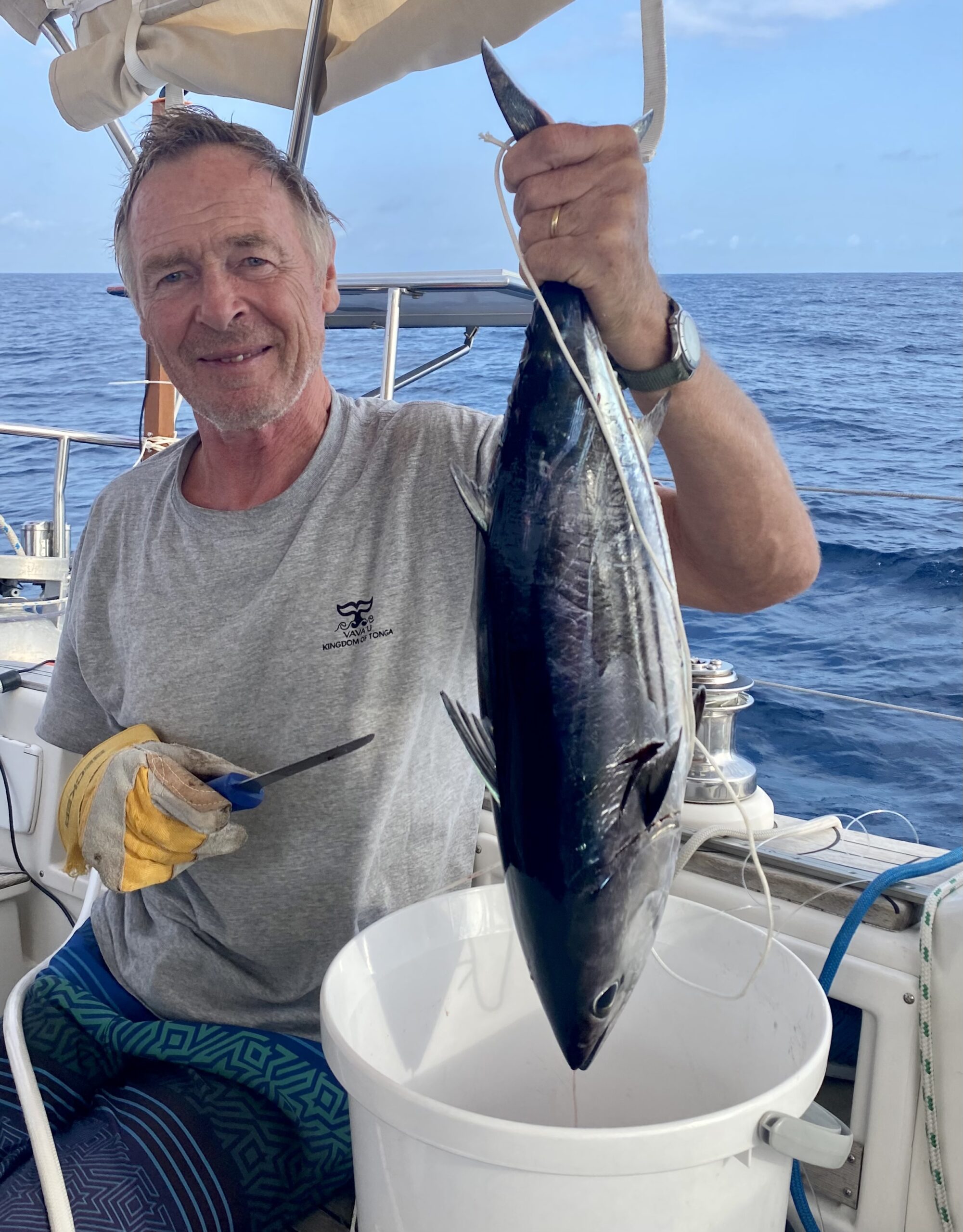
Day 5 was unpleasant, windy, rough and rolly but with 2-3 knots of current in our favour we were making good speed, at over 9 knots at times (not bad as we usually passage plan at 5 knots) following a winding route which took advantage of the rotating currents in this area.
The pole on which our ensign hangs at the stern broke as Hugh was pulling up the Duogen and we lost both pole and flag into the sea. Some hesitation as we decided whether to go back to retrieve it but by the time we had turned around and started to motor back it was lost to sight and, although we searched for a while, we couldn’t spot it. It was a useful MOB exercise which showed how difficult it would be to retrieve someone who had actually fallen overboard, especially in big seas and with only one of us left onboard. The bottom line is… don’t fall overboard especially in big seas.
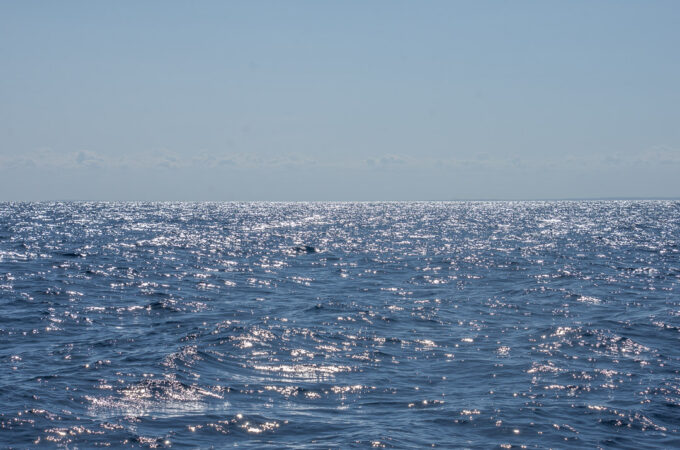
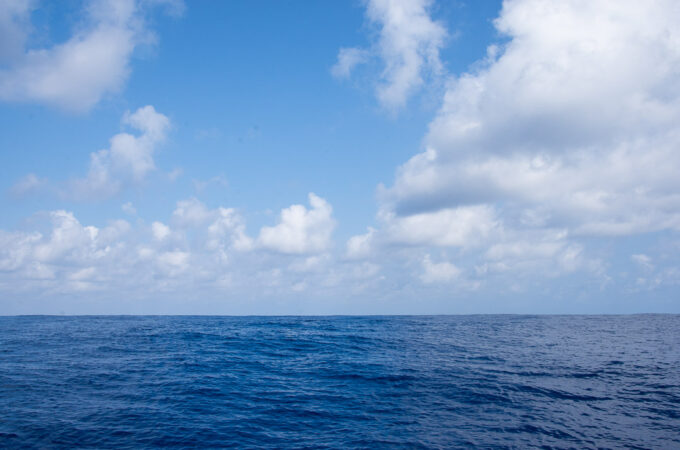
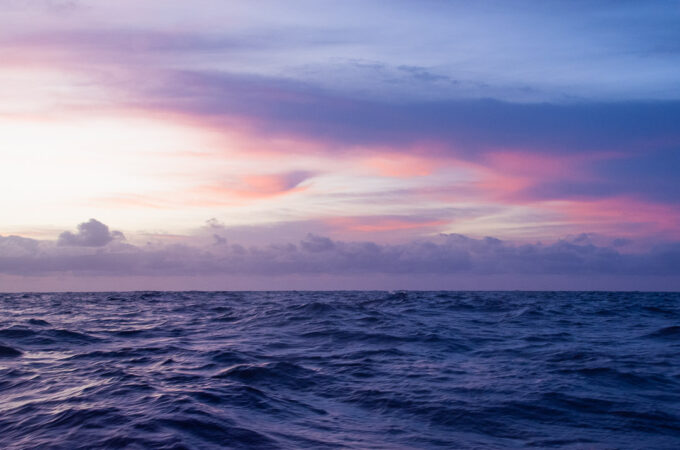
On day 6 at sea, with strong winds forecast from the southeast which would be against the current and from the direction we would be heading, we decided to stop on one of Mozambique’s offshore islands to let it pass through. Bazaruto is a National Park and a stop here was apparently tolerated by the park rangers, even if we weren’t officially checked into the country, and who would probably come and collect a park fee from us.
By now Endorphin was well ahead of us and they arrived that evening after dark, anchoring just inside the top of the island. With little wind we sailed and motored hard overnight to make sure we arrived before nightfall the next day. During the day we were passed by cargo ships mainly heading to or from Beira, a major port in Mozambique. That night was wonderful with a clear sky full of stars and shooting stars. Jon on Hecla gradually caught up with us and overtook.
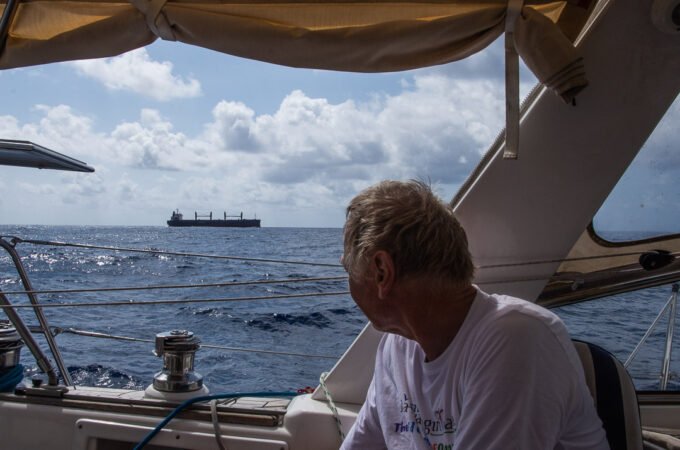
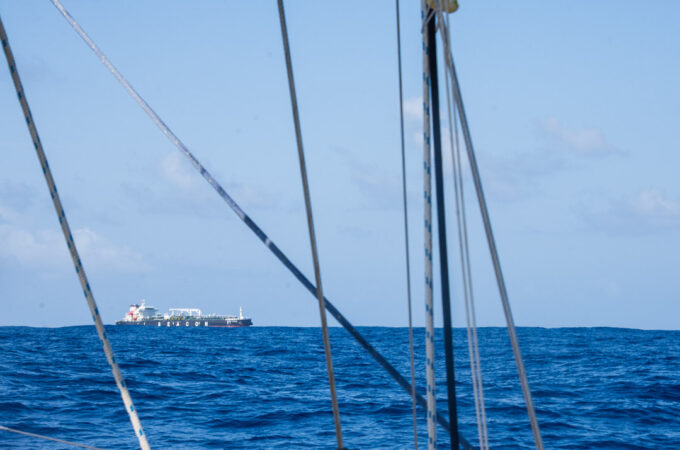
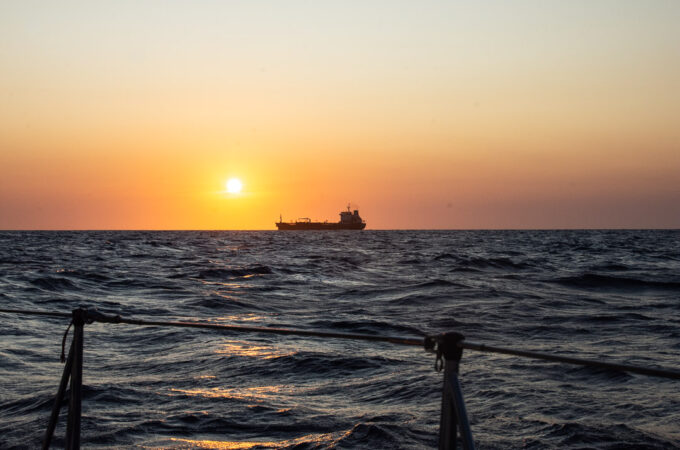
Mozambique was once a cruising ground enjoyed by yachts from South Africa as well as international cruisers on passage south, with its long sandy beaches, coral reefs and marine parks. Up until 1992 the country had been ravaged by civil war and although some degree of stability has returned, sadly it is pretty much a no-go area for yachties at the moment due to the corruption of some officials, with yachts being boarded and threatened, and you are strongly advised not to stop in most places along the coast of Mozambique. More recently Islamic insurgents have brought violence and terror to the north of the country.
Approaching Bazaruto the following day we were delighted to see Argo, with Joseph and Blanka from Czechia who we’d met in the Maldives last May, and who were coming direct from Tanzania. We took photos of each other’s yachts against the sandhills of Bazaruto… thank you to Joseph and Blanka for these pictures of Vega:
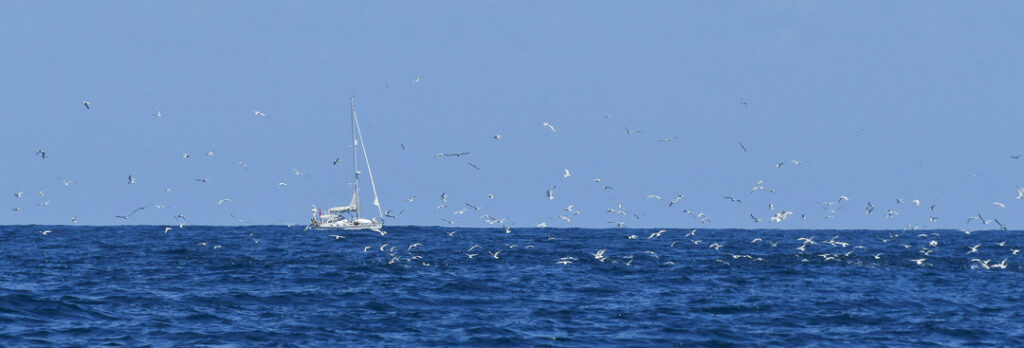
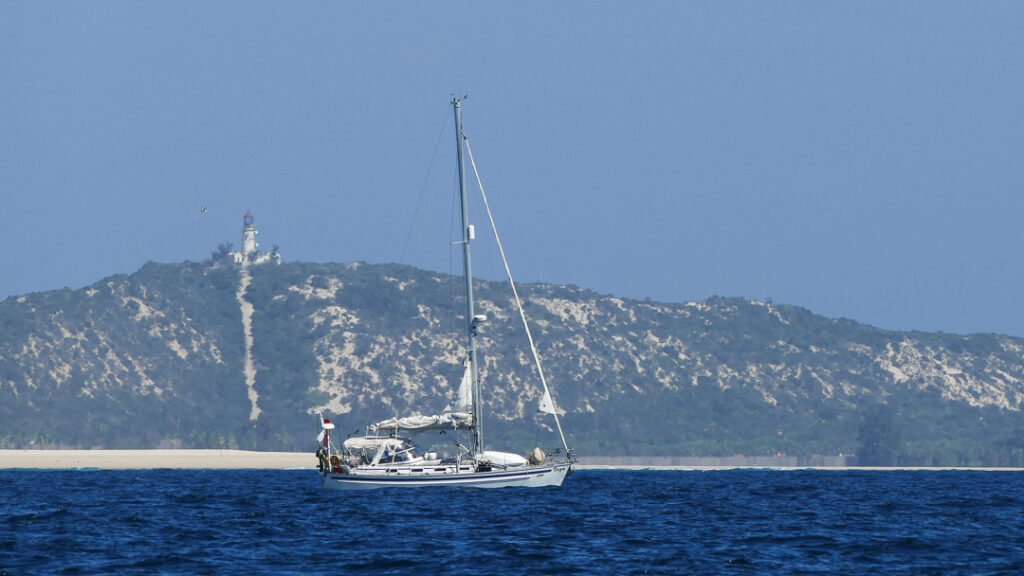
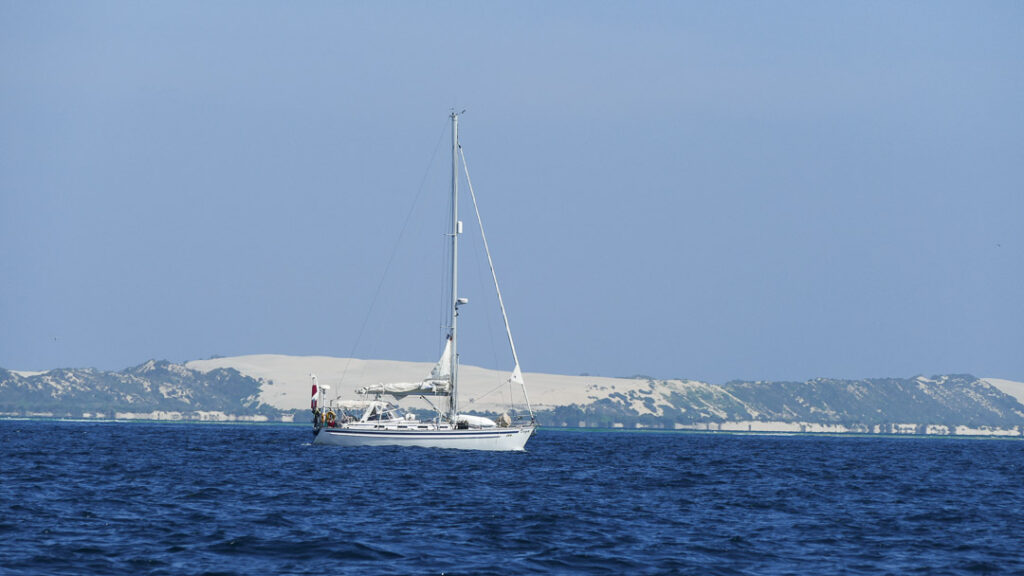
My photo of Argo:
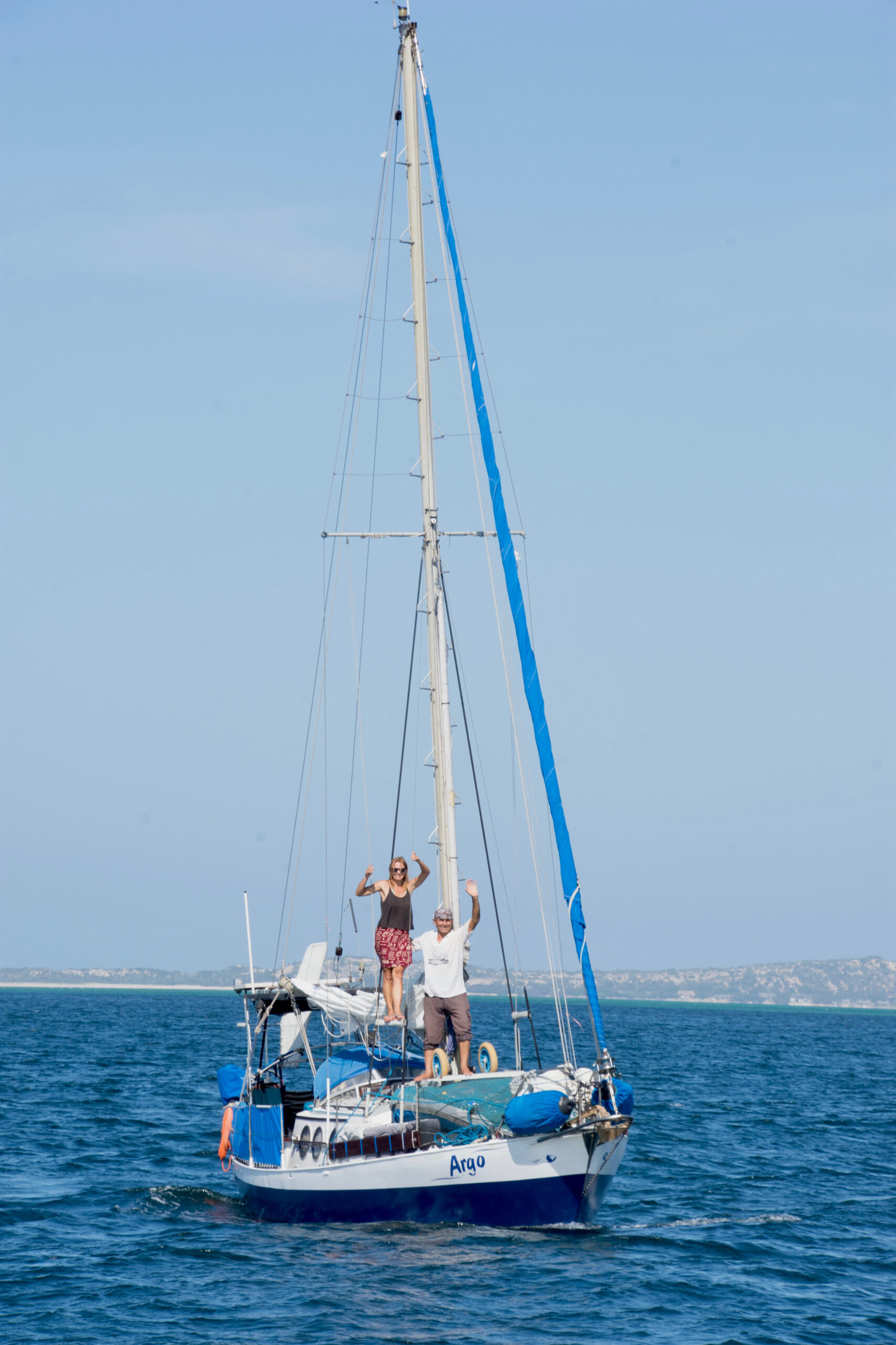
We followed the narrow channel between shallow sandbanks into the anchorage at Ponta Gengare where we should find good shelter from the imminent SE winds and, after congratulating each other on a successful passage so far, dropped anchor and settled in for the night. Ashore we could see rondavels (circular huts) amongst the trees.
Bazaruto Archipelago is a marine reserve with whales, manta rays, whale sharks and a population of dugongs (none of which we saw unfortunately). Bazaruto island itself is a massive sand dune, 22 miles long by 4 miles wide, and the islands are a destination for upmarket ecotourism.
We heard that an outboard motor had been stolen from a yacht that had stopped here a few days earlier. Hugh padlocked ours on before we went to bed as well as attaching a sturdy length of wire around it, in fact three padlocks were involved in trying to keep it in our possession. The spare jerry cans of diesel which are normally strapped on deck on passage had been brought into the cockpit, as had anything on deck that might possibly ‘walk’ in the night.
We had other chores to do on board the next day. Hugh wanted to empty the fuel from the jerry cans into our tank and to make fresh water to refill the water tanks on Vega. I needed to tidy the boat and get it into order down below. But first we were all invited on board Endorphin for morning coffee. Whilst we were socialising the park rangers came by in their motor launch to collect the marine park fee. The trouble was that none of us spoke Portuguese and none of them spoke English. Hugh was lent their phone and spoke to their boss, 35 miles away on the mainland, in English. After long negotiations we arrived at a fee of US$60 a boat for two nights and two people. They agreed to come by the next day to be paid and to bring an official receipt for the money.
The Bazaruto park rangers:
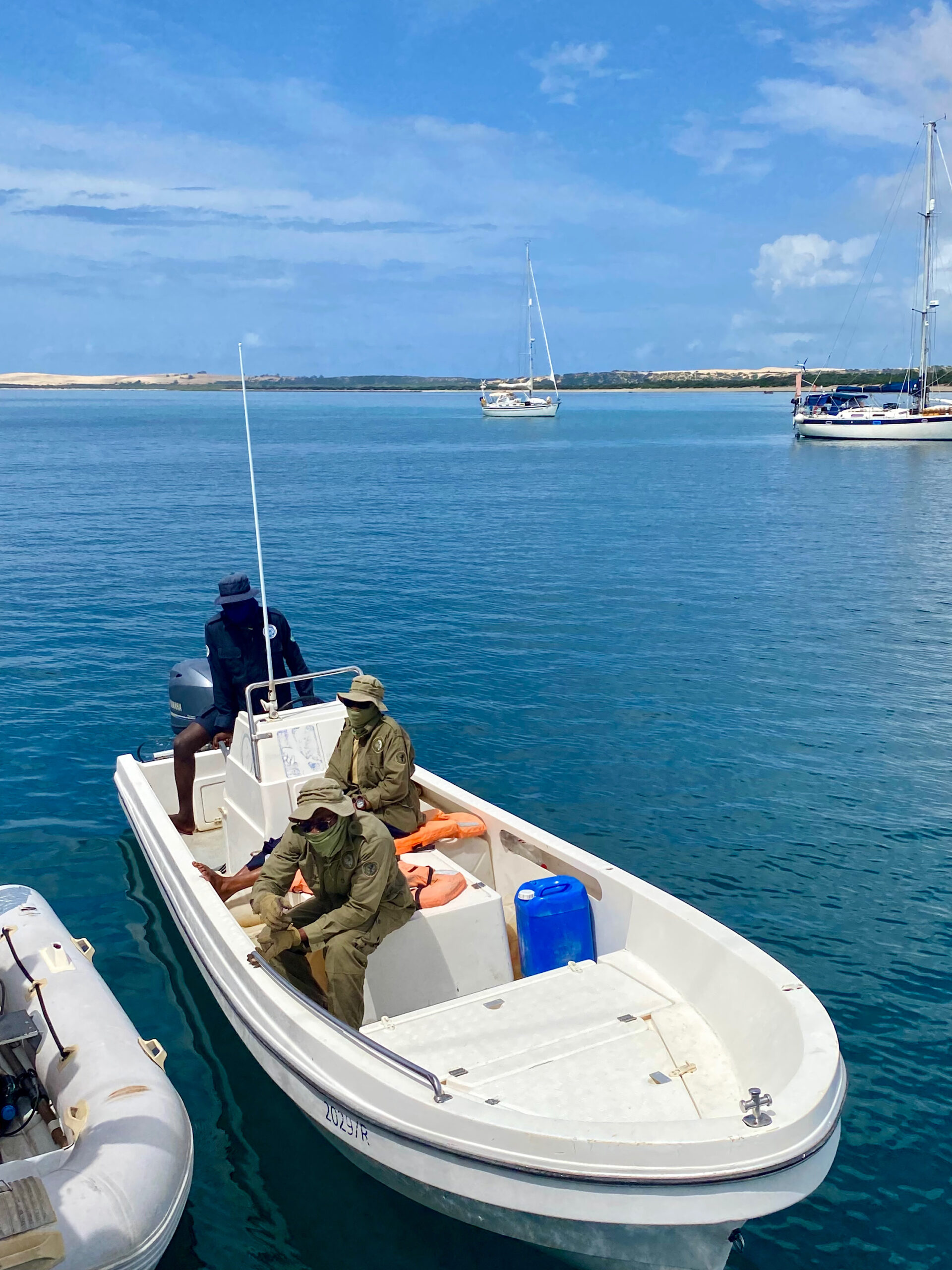
The next morning we had planned to go ashore but torrential rain kept us on board. Around lunchtime the rain eased and Colin and Izzi gave us a lift in their dinghy, Jon nobly staying behind with our dollars in case the rangers reappeared. Boys playing on the beach came over to have photos taken and we got chatting to some locals who were hanging out on the beach.
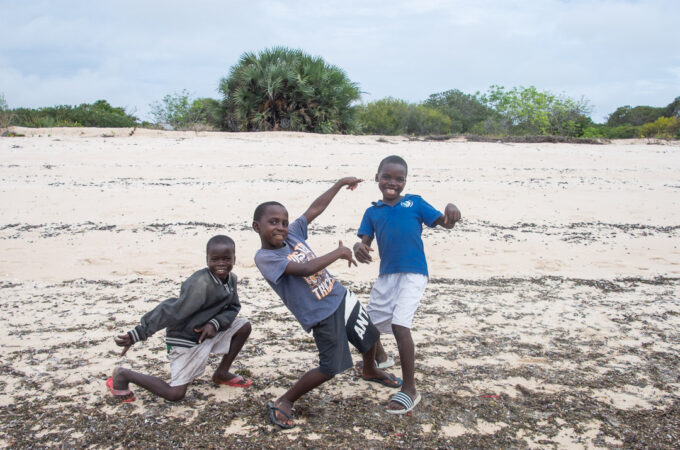
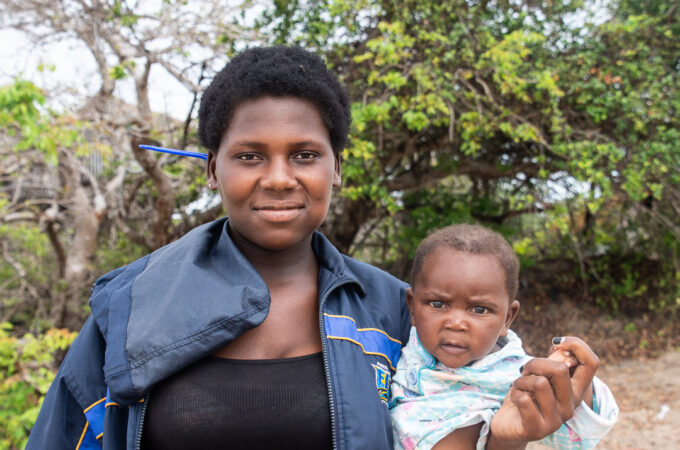
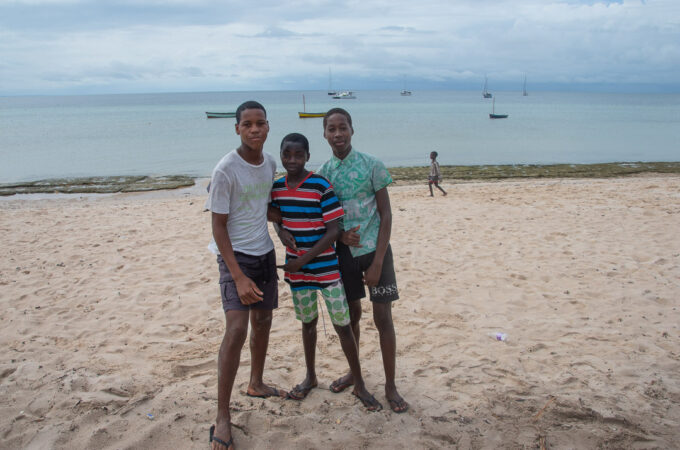
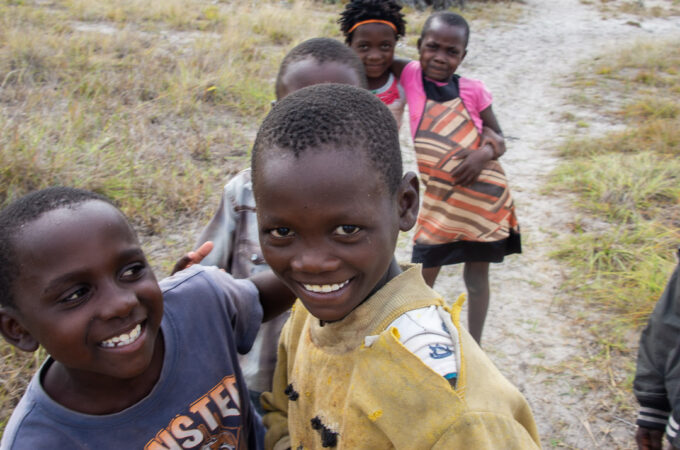
A surprising number of the locals spoke some English, which they had learnt at school. We asked to look around the village and soon had a large and noisy party accompanying us, laughing and joking, with the kids kicking around the football we’d brought for them. The houses were in neat compounds surrounded by thorny hedges, some simple thatched rondavels and some more impressively built with satellite discs. Water came from wells, either pumped up or in buckets lowered down on a rope.
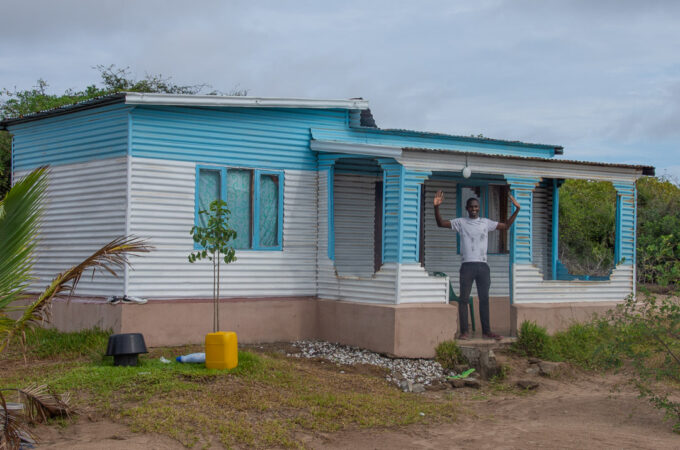
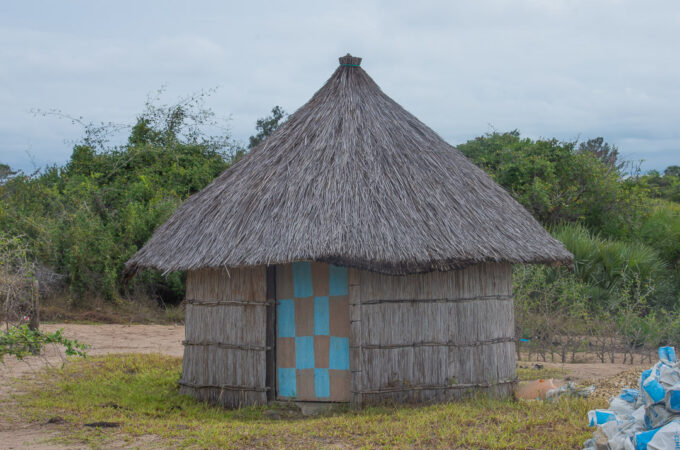
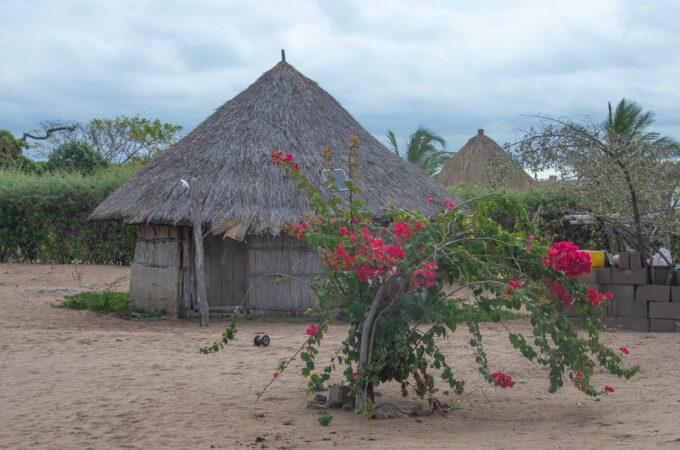
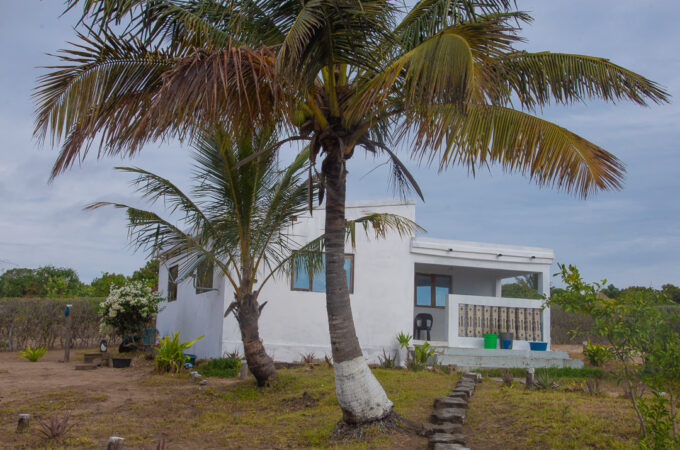
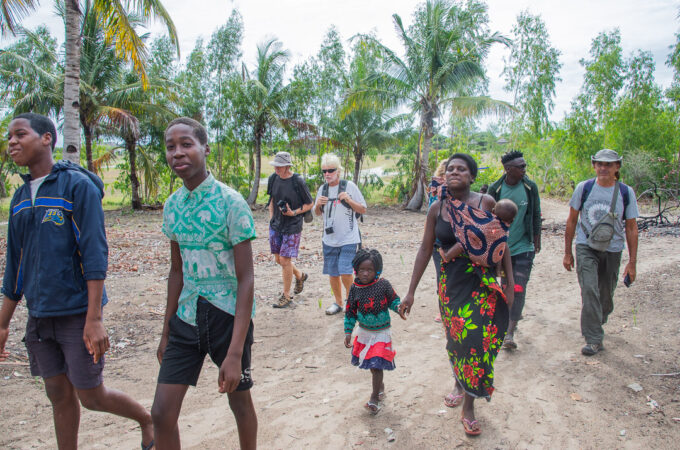
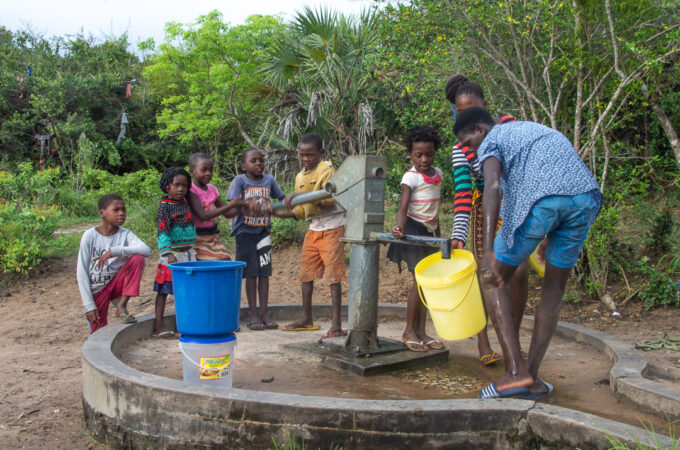
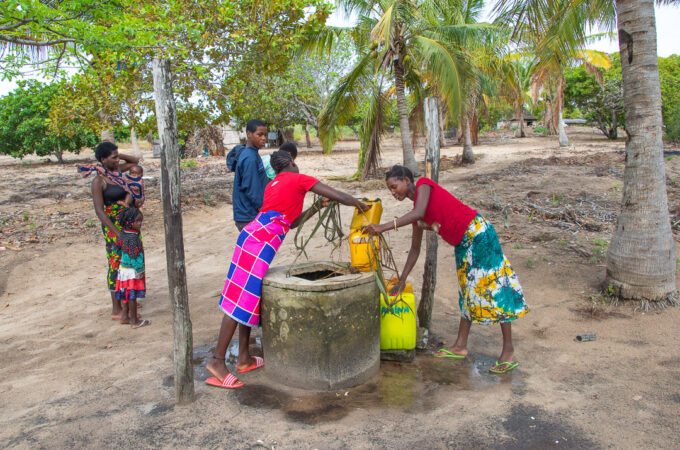
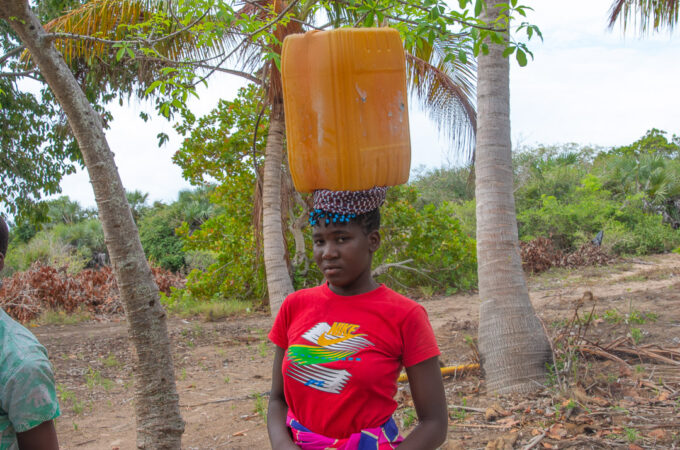
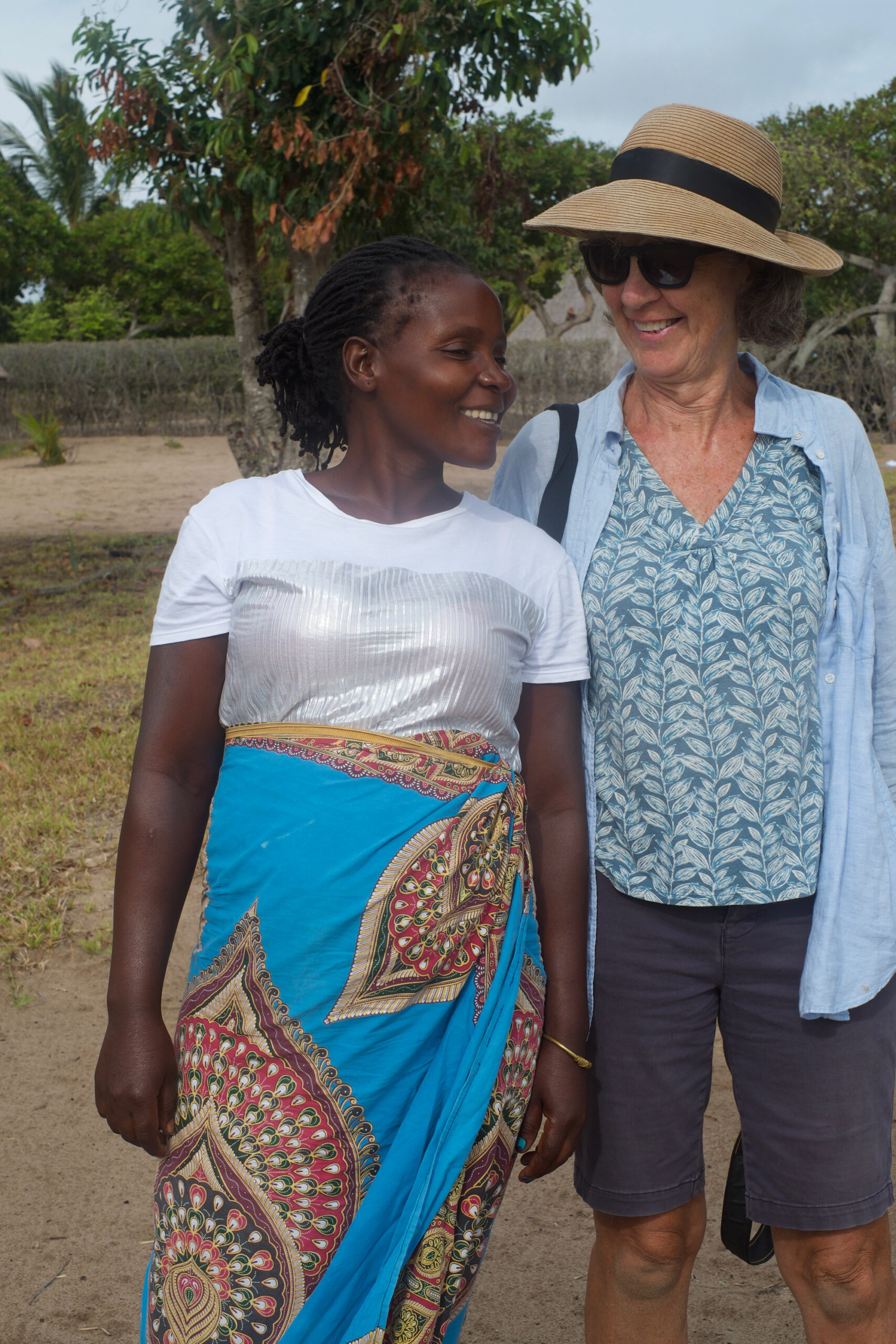
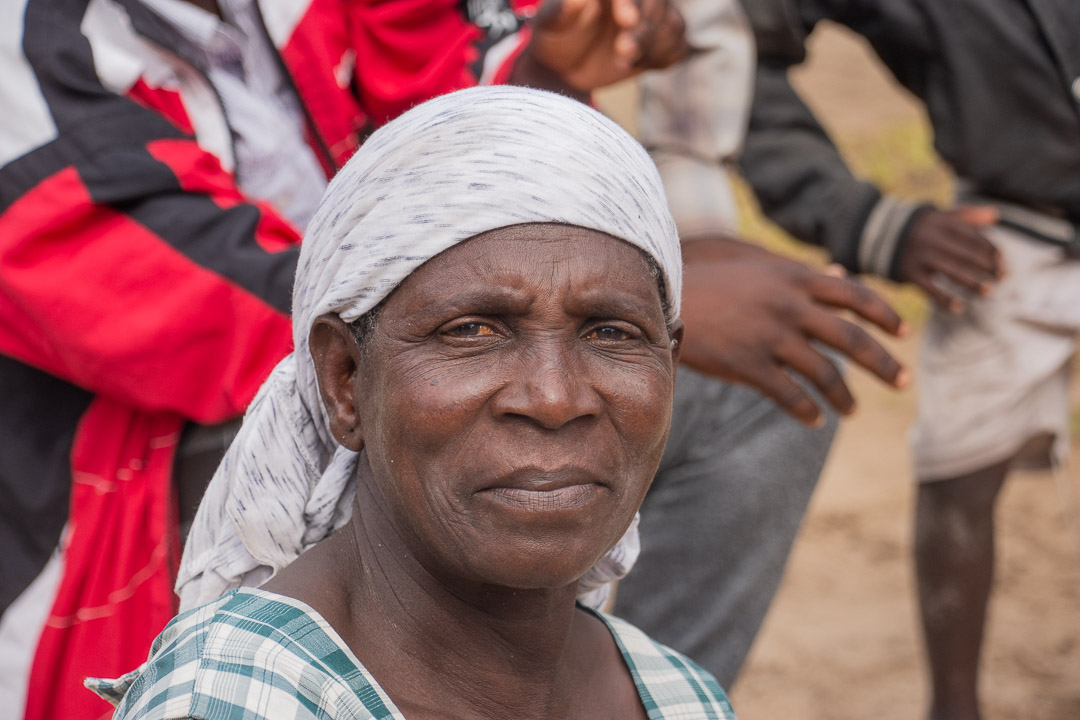
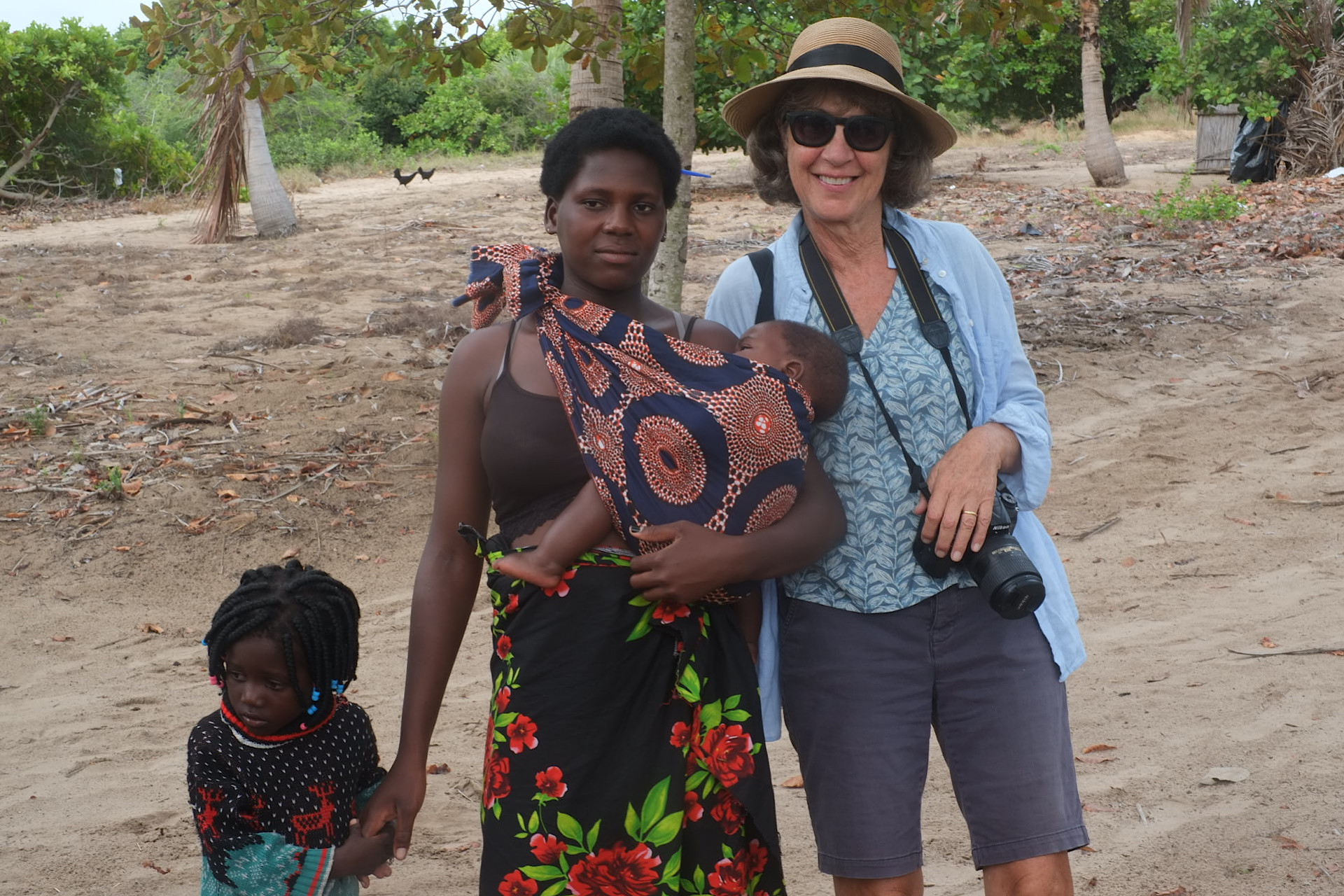
Our guide, Manuel, spoke good English and worked at the nearby tourist lodge which was still closed due to Covid but planning to reopen soon to tourists, many of whom come from Europe, particularly Portugal, he told me, as well as South Africa. Manuel appeared to be doing well, had built his own home and was building one for his widowed mother. We were introduced to his mother, wife and cousin (as below):
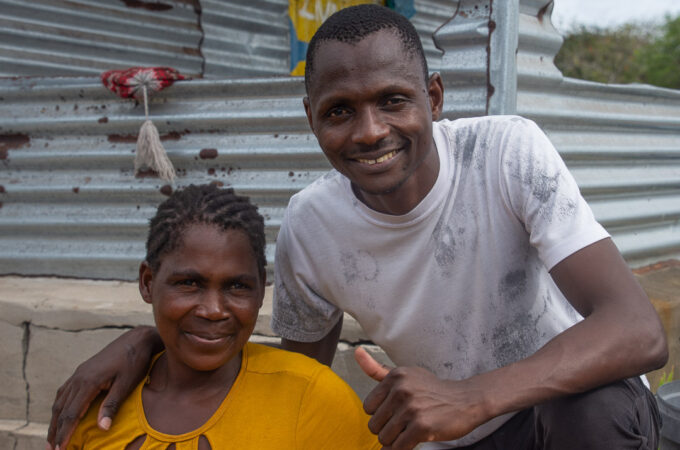
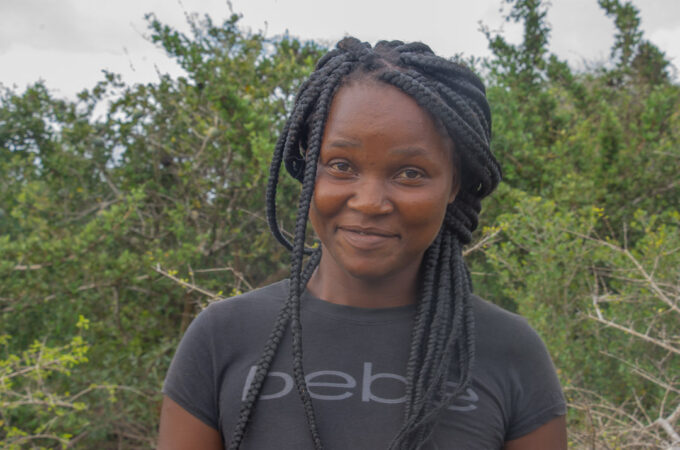
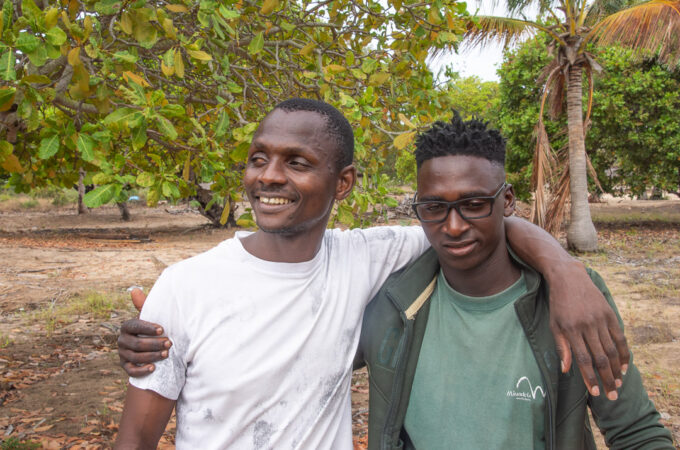
The secondary school, which has four teachers, was quite bare of books and equipment. There was a hospital with a glamorous young doctor but little in the way of medical equipment.
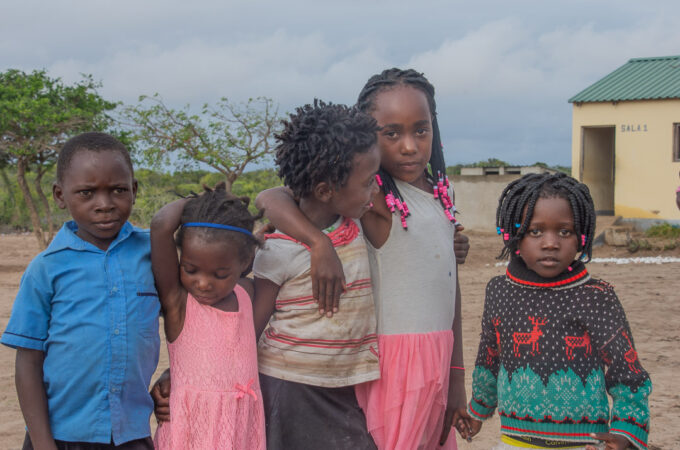
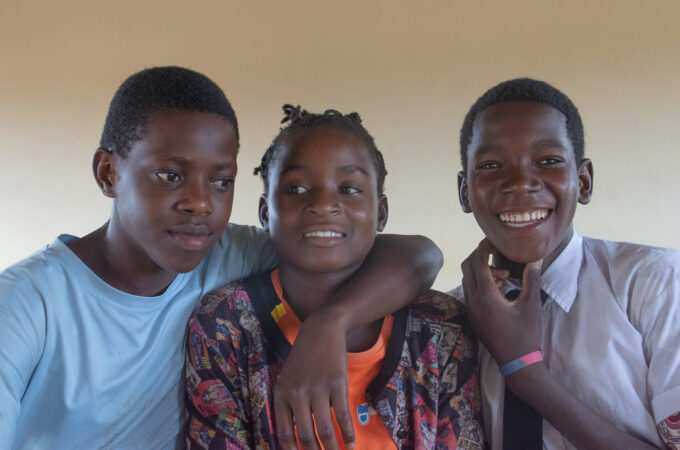
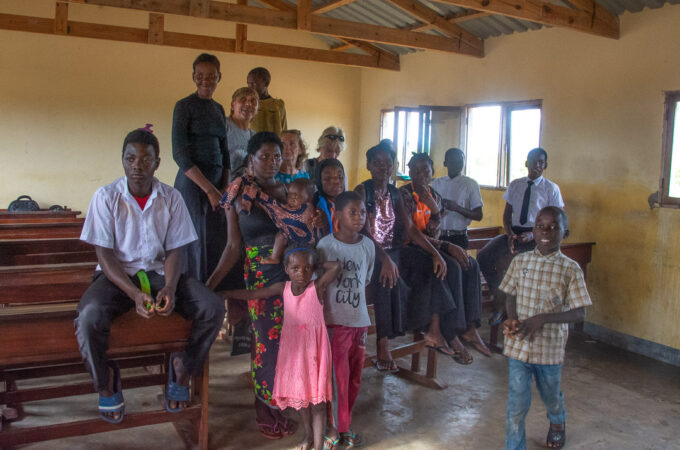
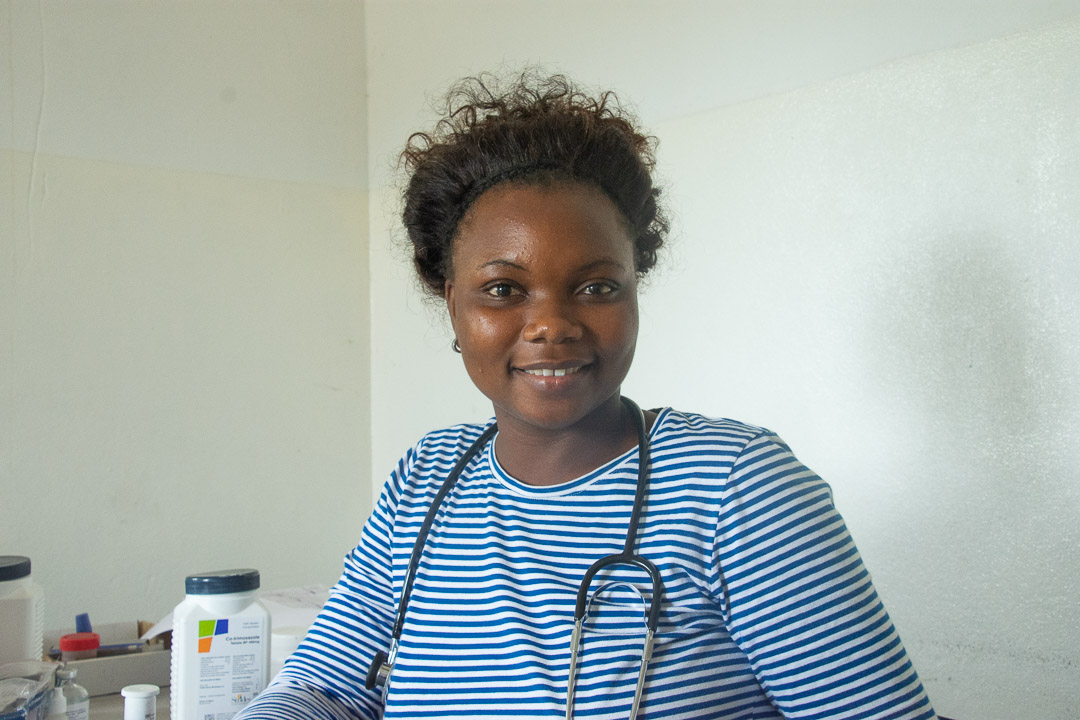
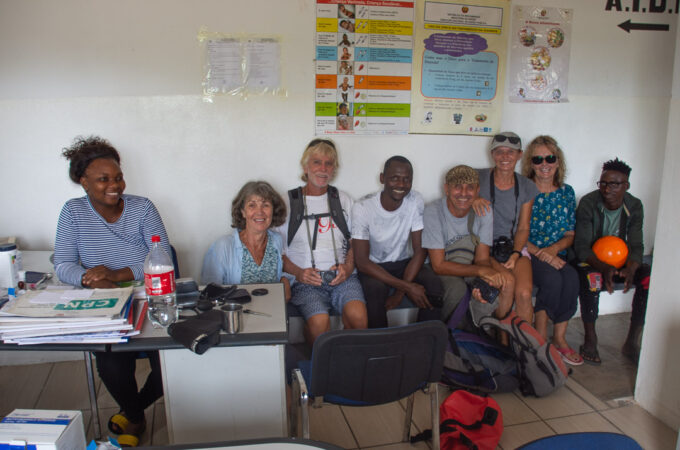
The people living here have to import most of their food from the mainland, they keep some goats and can only grow a few vegetables in the sand. They earn their living from fishing and collecting clams on the beach at low tide, are poor and have little in their lives in the way of material possessions. We met the women and many children but few adult men who are presumably mostly away working.
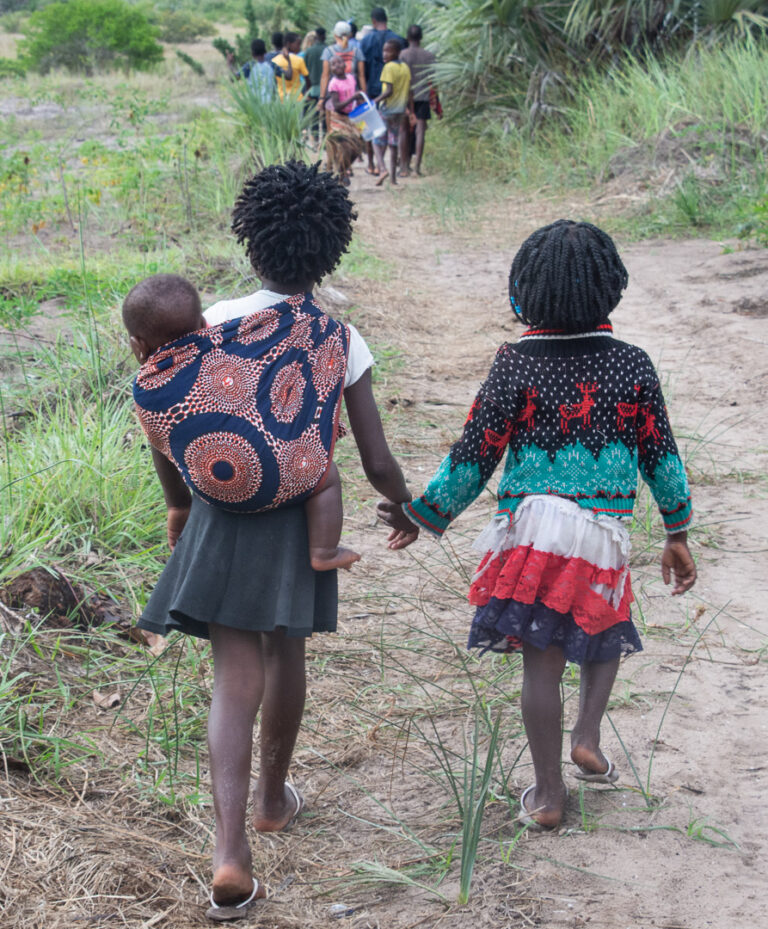
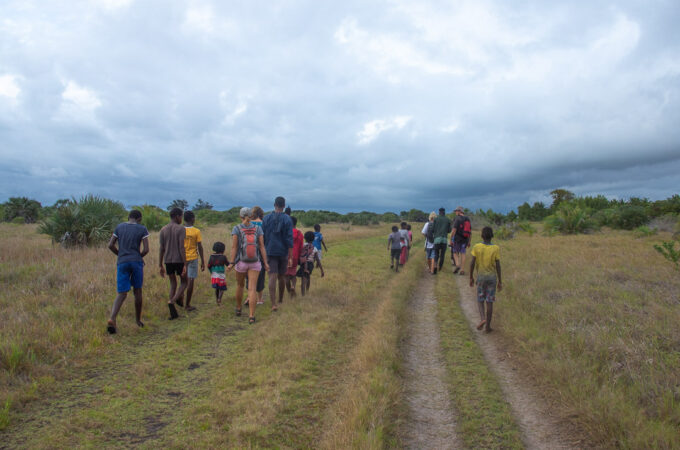
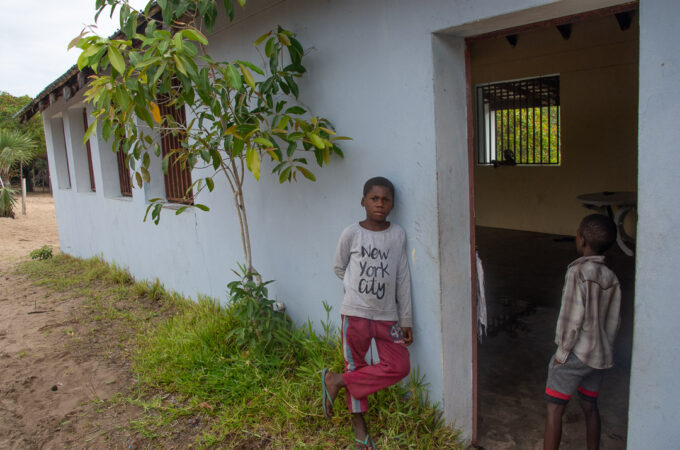
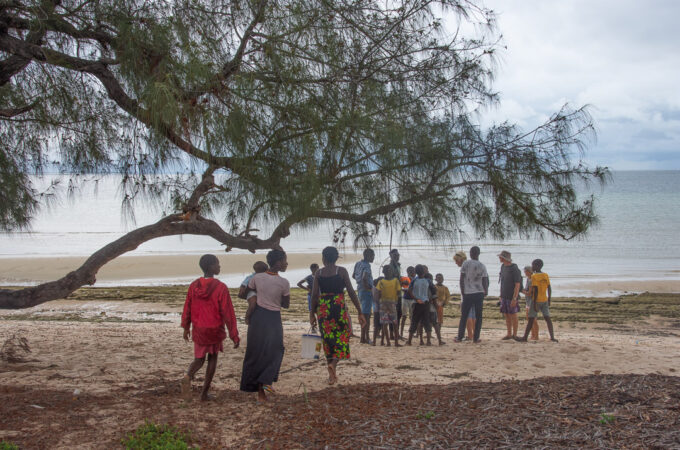
We didn’t managed to visit the large sand dunes several kilometres away, or the resort, as the rain threatened again. Dropping us back on Vega, Colin returned to shore to tow Joseph and Blanka back to Argo as they had rowed over and would have struggled to get back in the strong wind that was blowing up.
Over the three days in Bazaruto we had been watching the gribs (wind and wave forecasts) for a possible day to leave. We needed to be in Richard’s Bay by the following Tuesday before more southerlies of over 30 knots arrived from the south. Thursday afternoon was looking a distinct possibility and over the next 24 hours it was looking even better. Nothing threatening as Des would say.
Leaving the anchorage at Bazaruto in the early afternoon, dark clouds hung low above the horizon. We motored hard into the wind and into a rough, choppy sea, back out past the long sand dune at the top of Bazaruto that looked so interesting when we first arrived and which was now a dull strip of sand amongst the otherwise hostile dark grey sea and sky. Behind us Argo nobly sailed for most of the way, tacking to and fro, until turning directly into the wind themselves and motoring.
A slight hiccup as, going forward to raise the mainsail, the main halyard escaped from Hugh’s grip and swung wildly from the top of the mast, the shackle at the end threatening serious injury, until it wrapped itself around the backstay and he was able to hook it with the fishing net and pull it down (always remember to attach the halyard before leaving an anchorage – H).
The larger yachts gradually pulled ahead and within a few hours of passing the top of Bazaruto the other boats were lost to sight and some four or five hours after that they disappeared on our AIS too. We were on our own again. At some point the heavy cloud cleared leaving a clear night with a bright gibbous moon, Jupiter high above, the red planet Mars hanging just above the horizon and the constellations spread out across the sky above us. As the wind lessened the rough sea, which had been causing the horrible surging, jerking motion of the boat, calmed. It was one of those beautiful nights at sea with the boat progressing steadily and purposefully through the water, the sea lit by moonlight, the unpolluted sky bright with stars. The following day was hot and sunny with light winds and initially we sailed slowly as we headed along the low-lying Mozambique coast until the wind came up again overnight. The further south we got the colder it became at night and we had to dig out the warm tops and blankets to wrap ourselves in whilst on watch in the cockpit.
We had Des along with us, advising every morning on weather and whether there were any imminent ‘threats’. Two days from Richard’s Bay a warning went out from him of a low pressure system coming up from the south bringing rain and uncertain weather conditions and also, worryingly, an electric storm. He advised staying well to the east and only turning west towards Richards Bay once the storm had passed by. That night (November 5th) Hugh was fast asleep when the wind died… I didn’t realise immediately that it was the calm before the storm and I let the sails flog and the boat drift, rather than furling the genoa, putting the engine on and so waking Hugh (nothing to do with wanting to finish the chapter I was reading). All of a sudden the wind came up. In the dark it was hard to see which direction the wind was coming from and the boat was facing. There was chaos on board for a while until Hugh lifted the Duogen, we got the engine started, furled the genoa and managed turn the boat to motor southwards. We watched as flashes of lightning illuminated the horizon to starboard and then directly in front of us as we changed course to head further southeast. It was hard to know which was the best way to head as great bolts of lightning were hitting the sea to the west and ahead of us were more lightning flashes. We were relieved when, after a couple of hours of tension, the storm passed by and off to the north. We were lucky as several of the boats further ahead of us found themselves right in the middle of the electric storm with lighting all around them. A spectacular fireworks display for Guy Fawkes night but terrifying viewed from a yacht at sea when a direct hit could obliterate boat and occupants. From Des… ’I am ecstatic that you got through last night unscathed’.
Photos from Laura & Dick on SY Maia, who were in the middle of the storm:
Inevitably more things had gone wrong with the boats on passage. We heard that Il Sogno had been unable to furl their kite, a huge spinnaker-like sail, as it had become wrapped around their forestay. The news along the cruisers’ bush telegraph was that they were diverting to an anchorage to try to sort it, but later we learnt they had managed to drop the sail whilst still at sea. Endorphin’s self-steering broke down on the day we all left Bazaruto and, unable to fix it at sea and with no alternative, they had to steer the boat themselves for four days, taking turns in 1 or 2 hour shifts, an exhausting exercise. We really felt for them. Windwalker, an Australian catamaran, was towed into Richard’s Bay by the NSRI (the South African equivalent of the RNLI in the U.K.) after their engine broke down. The worst that happened to us was the handle broke off our oven door, hopefully something we can get easily fixed (and our new picture fell off the bulkhead – H).
On our last day at sea we got ready for our imminent arrival. Hugh secured the mainsail and gybed the genoa to make sure we were sailing optimally. I washed my hair and painted my toenails.
Approaching land we could see the wooded hills and huge sand dunes of South Africa reaching down to the sea. The last hours of the passage seemed interminable knowing our friends would be enjoying a meal and beer on shore whilst we still rolled our way towards them as the sun gradually dropped towards the horizon. It was dark by the time we spotted the lights of Richard’s Bay and the wind had been increasing in strength. I called up Port Control for permission to enter the channel into the port, which was denied as a large cargo ship was about to enter the busy commercial port. I tried to explain we were a sailing boat in strong winds and current but the firm reply was ‘you will NOT enter the channel’. Hugh seemed to find this hilariously funny as he turned and motored back until we were granted permission…. you do not argue with Port Control! Finally turning into the channel we followed the leading lights to the Q (for quarantine) dock and were met with big hugs by our friends on Hecla, Endorphin, Maia and Grand Lux. We ordered fish and chips to be delivered from the nearby Dros restaurant, Hugh falling asleep at the table whilst eating.

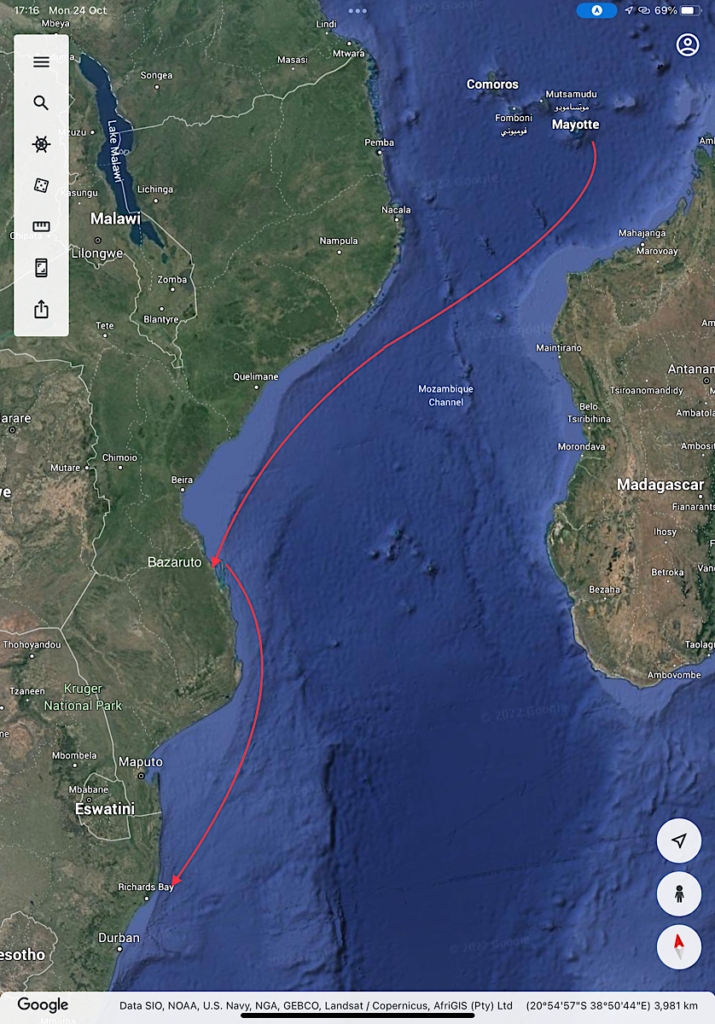
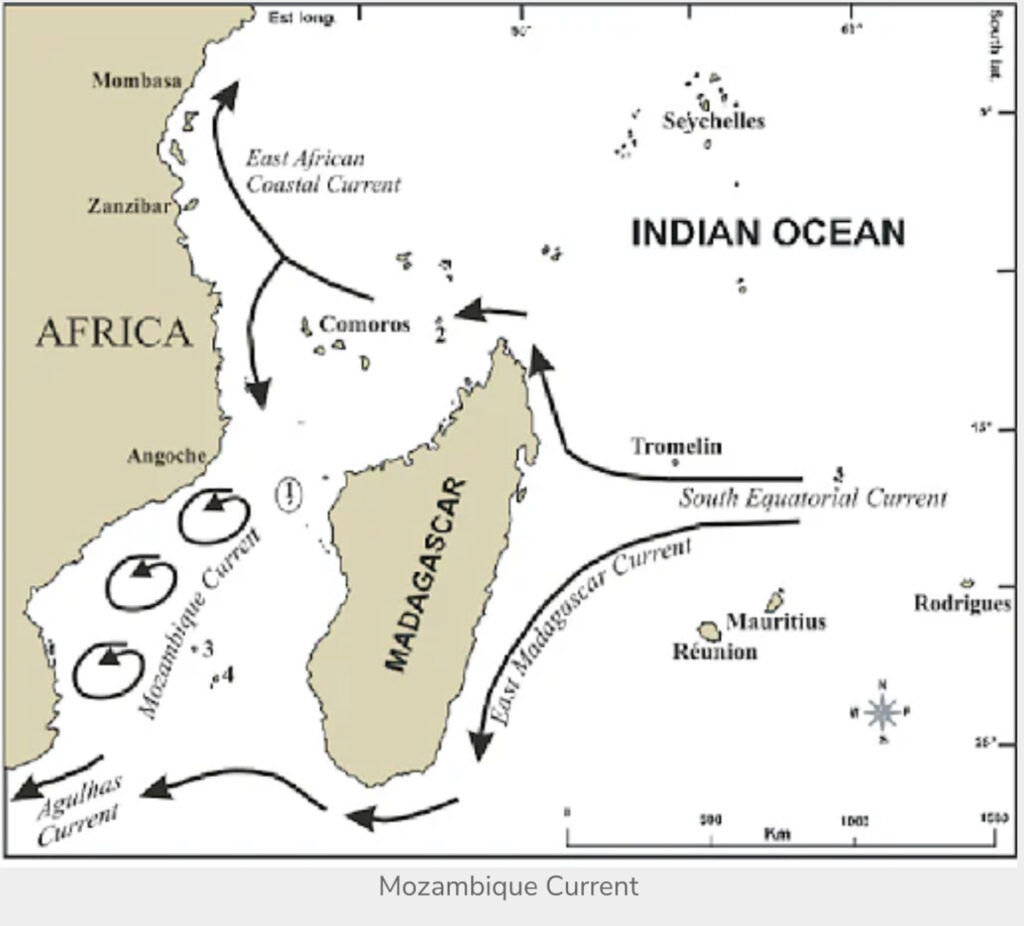
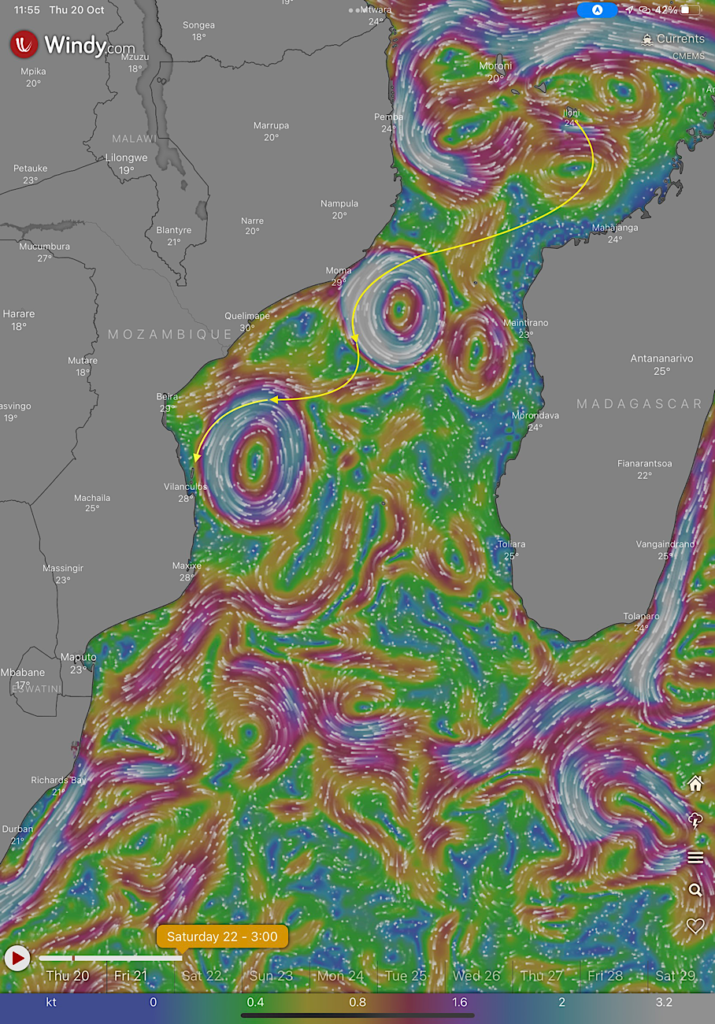
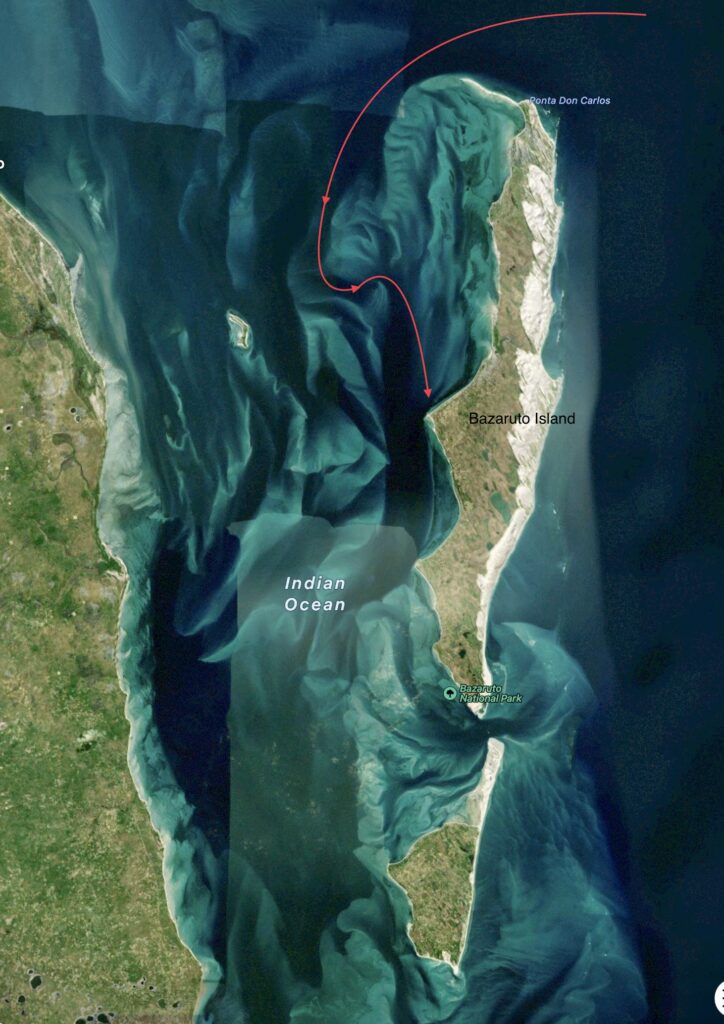
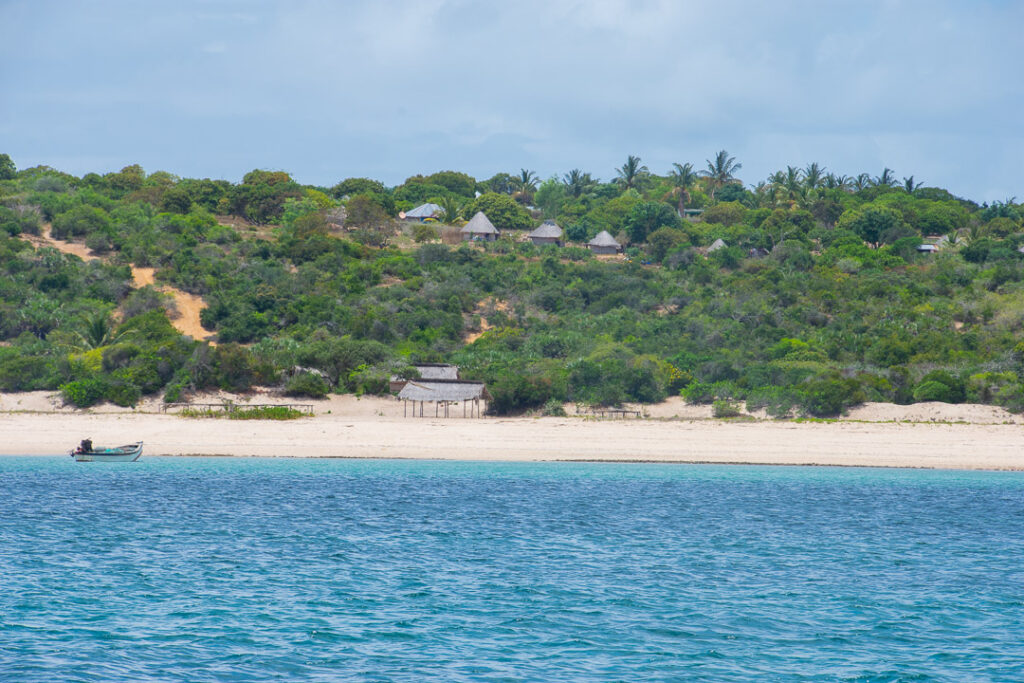
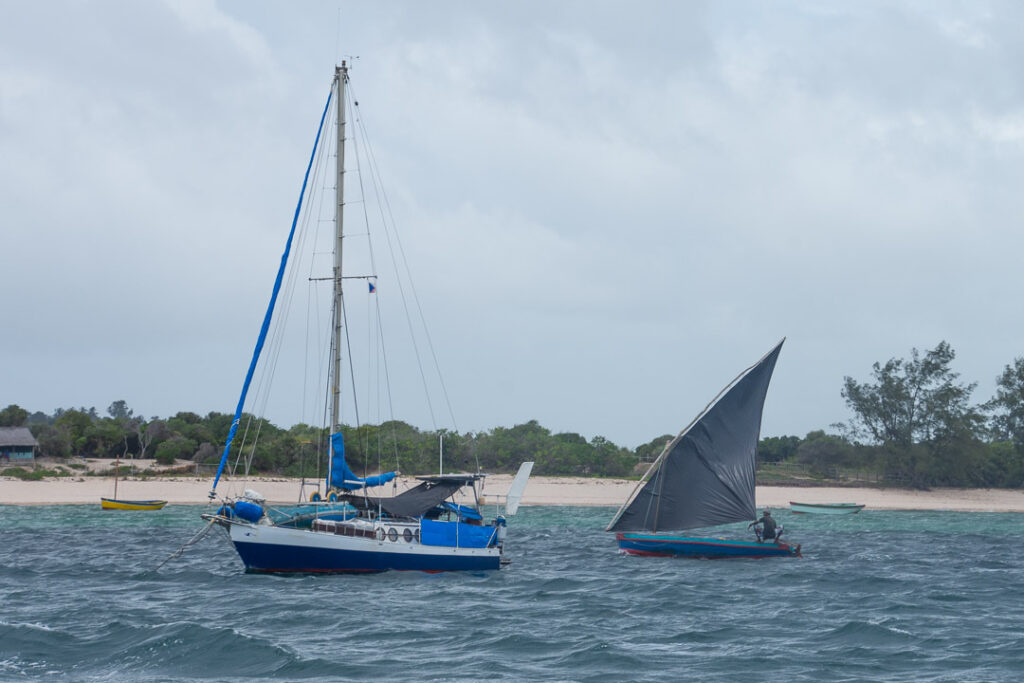
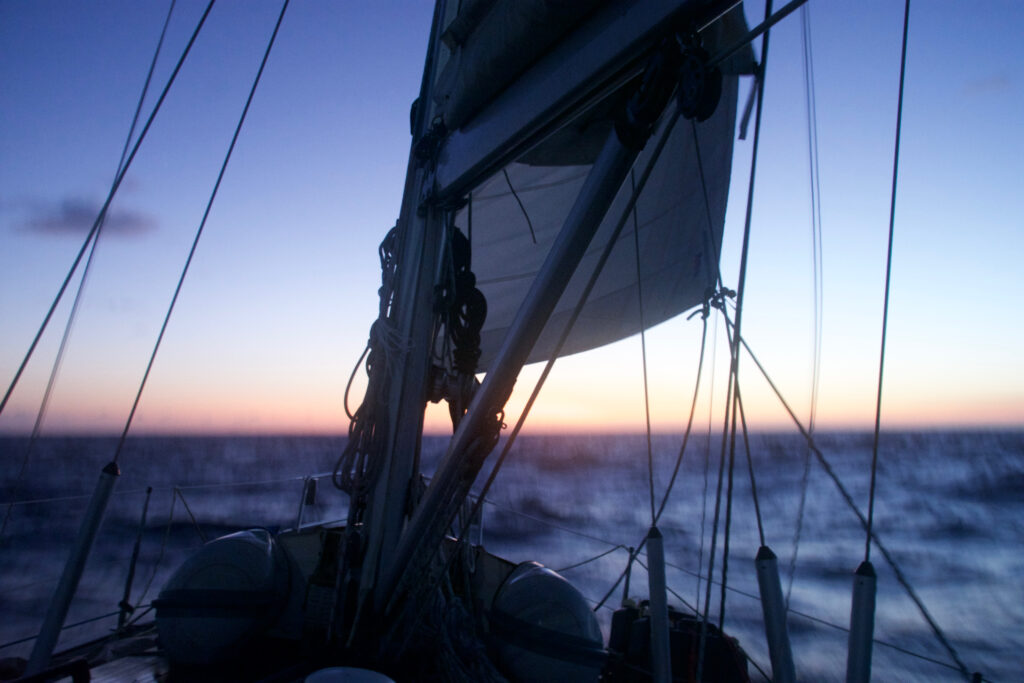
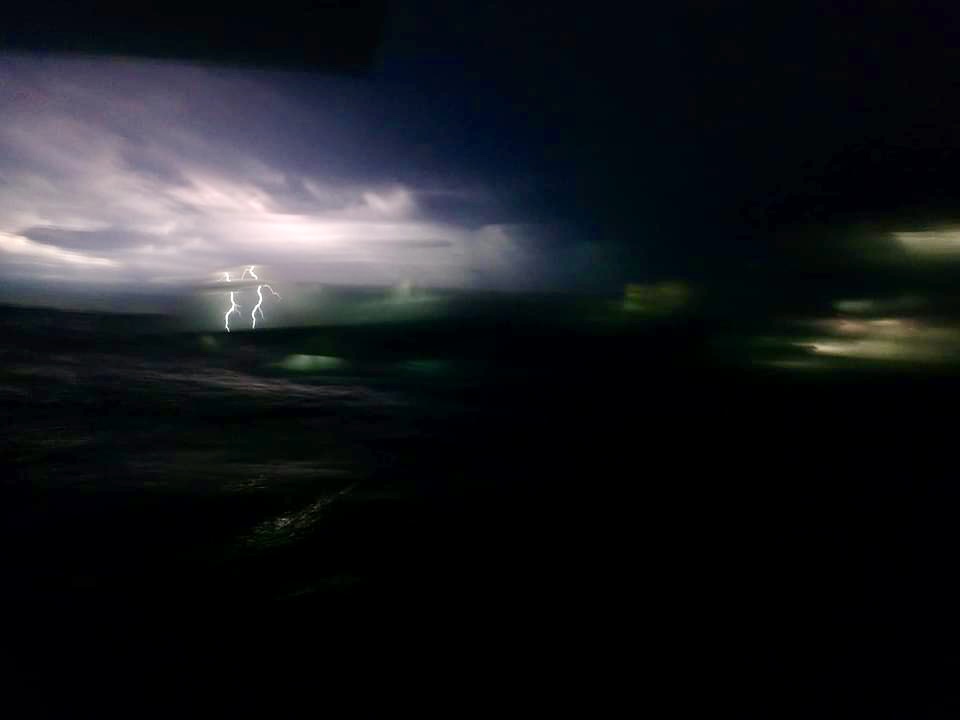
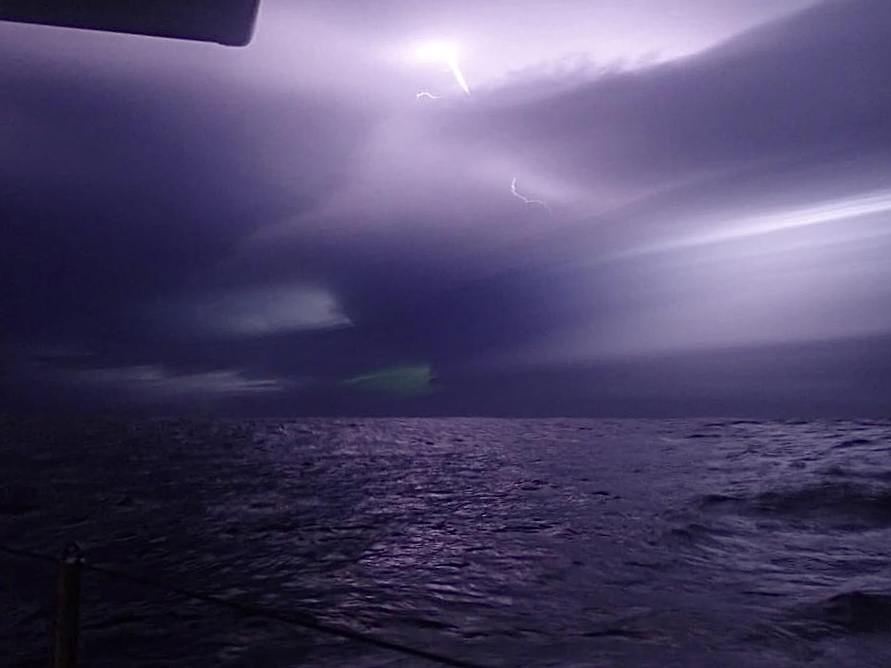
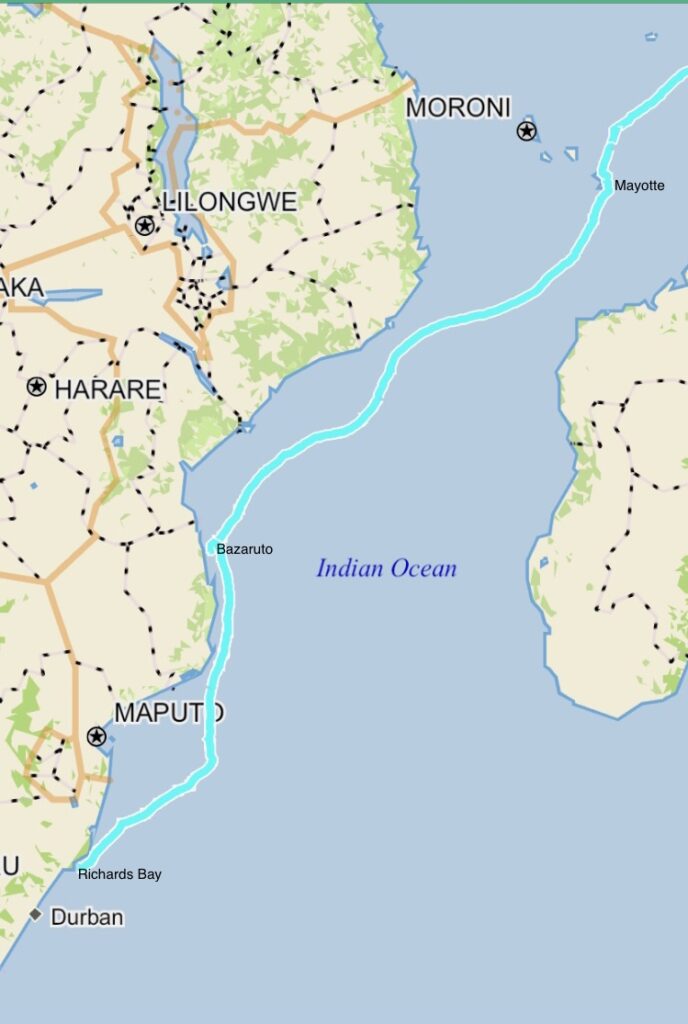
12 Comments
Hugh Lucas
December 11, 2022 - 5:43 pmWonderful – as ever the best way to relive the journey
annie
December 13, 2022 - 12:48 pmAnd there’s no one I’d rather be doing it with xxx
Gerard
December 11, 2022 - 7:49 pmExciting but wonderful reading. Another adventure to tick off the list.
Have a Happy Christmas and New Year.
annie
December 13, 2022 - 12:49 pmThanks Gerard and a very happy Christmas and new year to you both too xx
Peter Baylis
December 12, 2022 - 7:11 amFantastic account of a worrying passage. Loved the interaction with the locals. Merry Christmas to you both.
annie
December 13, 2022 - 12:50 pmThank you Pete. Happy Christmas to you and Jude xx
Tom Hutchison
December 12, 2022 - 8:45 amThats a great read Annie. The catalogue of decisions needed to complete this journey seems so complex. Such a paradox; on the one hand being in control of your own boat seems such an icon of freedom ; on the other you are constantly constrained by weather, currents and sea conditions, local rules, interaction with local human populations and not least technical function of the boat. Your writing style reads well and I love the photos. Bonne Voyage!! hope to see you both over Xmas if you are back
annie
December 13, 2022 - 12:51 pmThank you so much Tommy. See you at the Ambling Christmas Party xx
Paul Bayley
December 12, 2022 - 11:35 amGosh, I was worried for you even thought I knew you made it. great reading and some fab photo’s.
Well done and a Merry Christmas and Happy New Year to you both and your family.
Paul
annie
December 13, 2022 - 1:04 pmThank you Paul. Wishing you a very happy Christmas and New Year xx
Jenny
December 12, 2022 - 1:55 pmGreat report! Well done! Hugs and love to you, Craig and Karene, Colin and Izzy, Jon, from the former crew of Lady. Charlie and Jenny
annie
December 13, 2022 - 1:00 pmHi Charlie and Jenny. Good to hear from you and hope you are enjoying life back on land. Love and hugs to you too xx